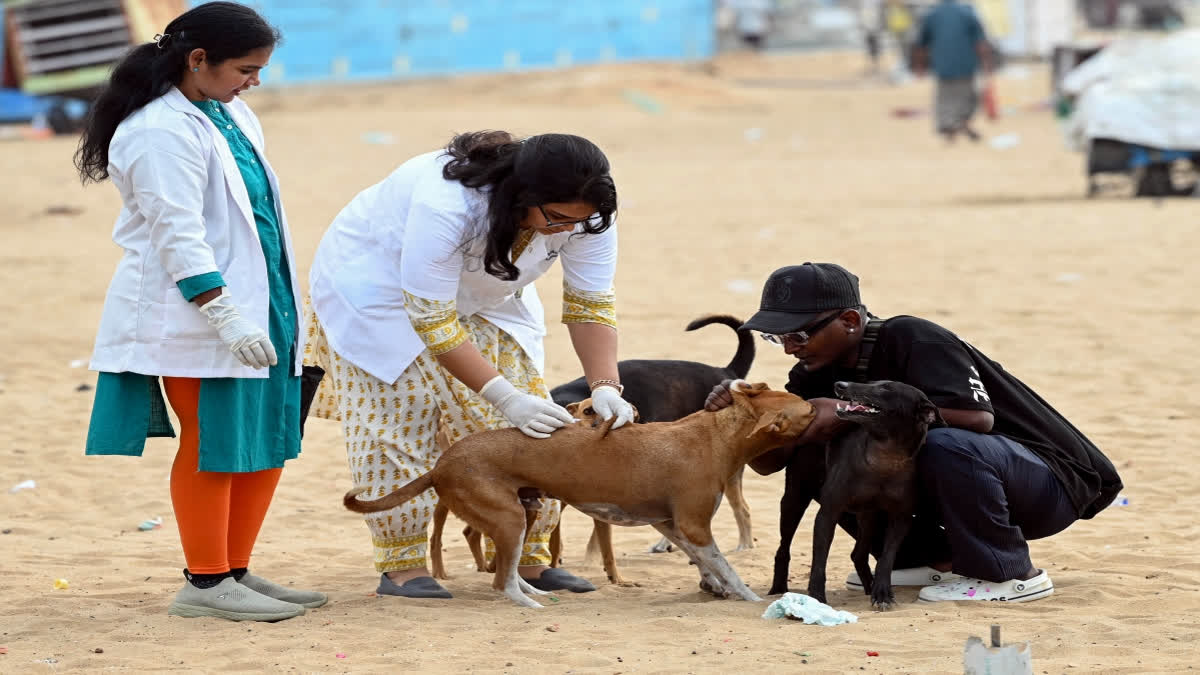Every year the World Rabies Day celebrated on 28th September to raise awareness about rabies prevention and to highlight progress in defeating this disease. This year, the day will mark the 18th World Rabies Day.
28 September also marks the anniversary of Louis Pasteur's death, the French chemist and microbiologist, who developed the first rabies vaccine. The world has the vaccines, medicines, tools, and technologies to break the cycle of one of the oldest diseases.
Rabies is estimated to cause 59,000 human deaths annually in over 150 countries, with 95 per cent of cases occurring in Africa and Asia.
World Rabies Day History:
Louis Pasteur, a famous scientist from France, created the initial rabies vaccination. This achievement represented a major step forward in the battle against rabies. The establishment of World Rabies Day by the World Health Organization (WHO) and the Food and Agriculture Organization (FAO) aims to raise awareness about rabies and encourage prevention efforts.
Theme of the year: This year’s World Rabies Day theme is: 'Breaking Rabies Boundaries'. This theme calls for innovative strategies and collaboration across various sectors and regions, highlighting the importance of integrating human, animal, and environmental health efforts.
By breaking boundaries, we can overcome geographic, socio-economic, and educational barriers, ensuring widespread vaccination, awareness, and access to medical care. This theme highlights the need for cross-sectoral and cross-border collaborations, bringing together governments, health organisations, veterinary services, and communities.
Know about Rabies:
Rabies is a fatal viral illness that impacts the central nervous system of mammals, humans included. Its main mode of transmission is usually through the bite or scratch of an infected animal, with dogs being the most frequent carriers. Once symptoms of rabies appear, the disease is almost always fatal, making immediate treatment critical after exposure. Research shows that the rabies virus travels through the nervous system to the brain, leading to severe neurological symptoms such as agitation, hallucinations, and paralysis. Despite its severity, rabies is entirely preventable through timely vaccination and proper wound care, making awareness and early intervention essential in high-risk areas.
Rabies symptoms in humans:
Initial symptoms: These can include flu-like symptoms like fever, headache, weakness, or discomfort. There may also be a tingling, prickling, or itching sensation at the site of the bite. These symptoms can last for several days.
Severe disease: This usually appears within two weeks of the first symptoms. Symptoms include Anxiety, Insomnia, Confusion, Agitation, Delirium, Hallucinations, Hydrophobia (fear of water), Hypersalivation, and Seizures.
Paralytic rabies, which accounts for about 20% of the total number of human cases, runs a less dramatic and usually longer course than the furious form. Muscles gradually become paralysed, starting at the site of the bite or scratch. A coma slowly develops and eventually death occurs. The paralytic form of rabies is often misdiagnosed, contributing to the under-reporting of the disease.
Prevention of Rabies:
Vaccinate pets: Get your pets vaccinated against rabies regularly, particularly dogs and cats.
Vaccinating people: Effective vaccines are available to immunise people both before and after potential exposures. As listed under the WHO - Prequalification of Medical Products, as of 2024, there are only 3 WHO pre-qualified human rabies vaccines available globally: RABIVAX-S by Serum Institute of India Pvt. Ltd., VaxiRab N by Zydus Lifesciences Limited, and VERORAB by Sanofi Pasteur.
Awareness: Public education for both children and adults on dog behaviour and bite prevention, what to do if bitten or scratched by a potentially rabid animal, and responsible pet ownership are essential extensions of rabies vaccination programmes.
Keep pets away from wild animals: Avoid letting your pets come into contact with wild animals or unfamiliar pets.
Avoid wild animals: Refrain from engaging with wild animals, regardless of their behaviour. Avoid attempting to make physical contact with them or persuade them to consume food from your hands.
Be aware of rabies in your area: Recognise the symptoms of rabies and notify authorities if you see an animal exhibiting odd behaviour.
Seek immediate medical care: If you are bitten or scratched by a wild animal or come into contact with rabies in any other way, seek urgent medical attention by contacting a healthcare professional promptly.
Get vaccinated before exposure: It is advisable to receive the rabies vaccine regularly if you are at high risk of exposure before being exposed to the virus.
Rabies in India:
Rabies, which has been recognised for more than 4,000 years, was initially observed in ancient Mesopotamia and India, with early texts such as the Susruta Samhita mentioning its symptoms. The first inactivated rabies vaccine was developed by the Pasteur Institute of India (PII) in 1970. In 1970, the PII created India's first native trivalent oral polio vaccine.
Statistics:
India is endemic to rabies, a viral disease that is preventable with a vaccine. According to WHO, the country is responsible for 36% of the world's rabies deaths. The National Health Profile (NHP) reported that rabies incidence in India declined from 2.36 to 0.41 per 10 million people between 2005 and 2020. In 2022, 307 people died from rabies in India, with the highest numbers of cases in Delhi, West Bengal, Maharashtra, Karnataka, and Andhra Pradesh.
As of July 30, 2024, 286 people died from dog bites in India in 2023. There were also nearly three million dog bite cases reported in the country that year.
Some measures that can be taken to control rabies include:
- Vaccinating dogs
- Sterilizing stray dogs
- Promoting the adoption of street dogs
- Enforcing strict regulations on pet ownership
- Implementing mass media campaigns to educate the public about rabies
- Improving pre-exposure vaccination rates for vulnerable populations
- Improving awareness of the need for post-exposure prophylaxis after a bite



